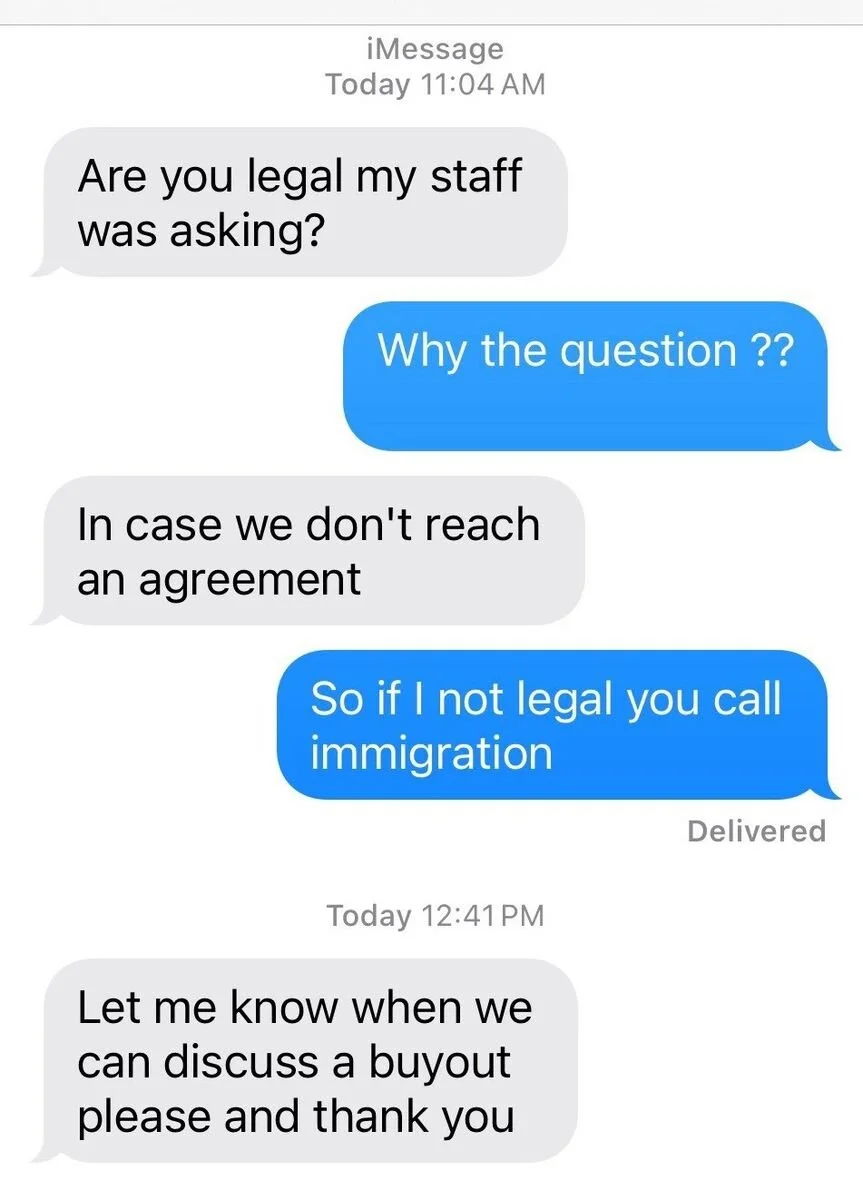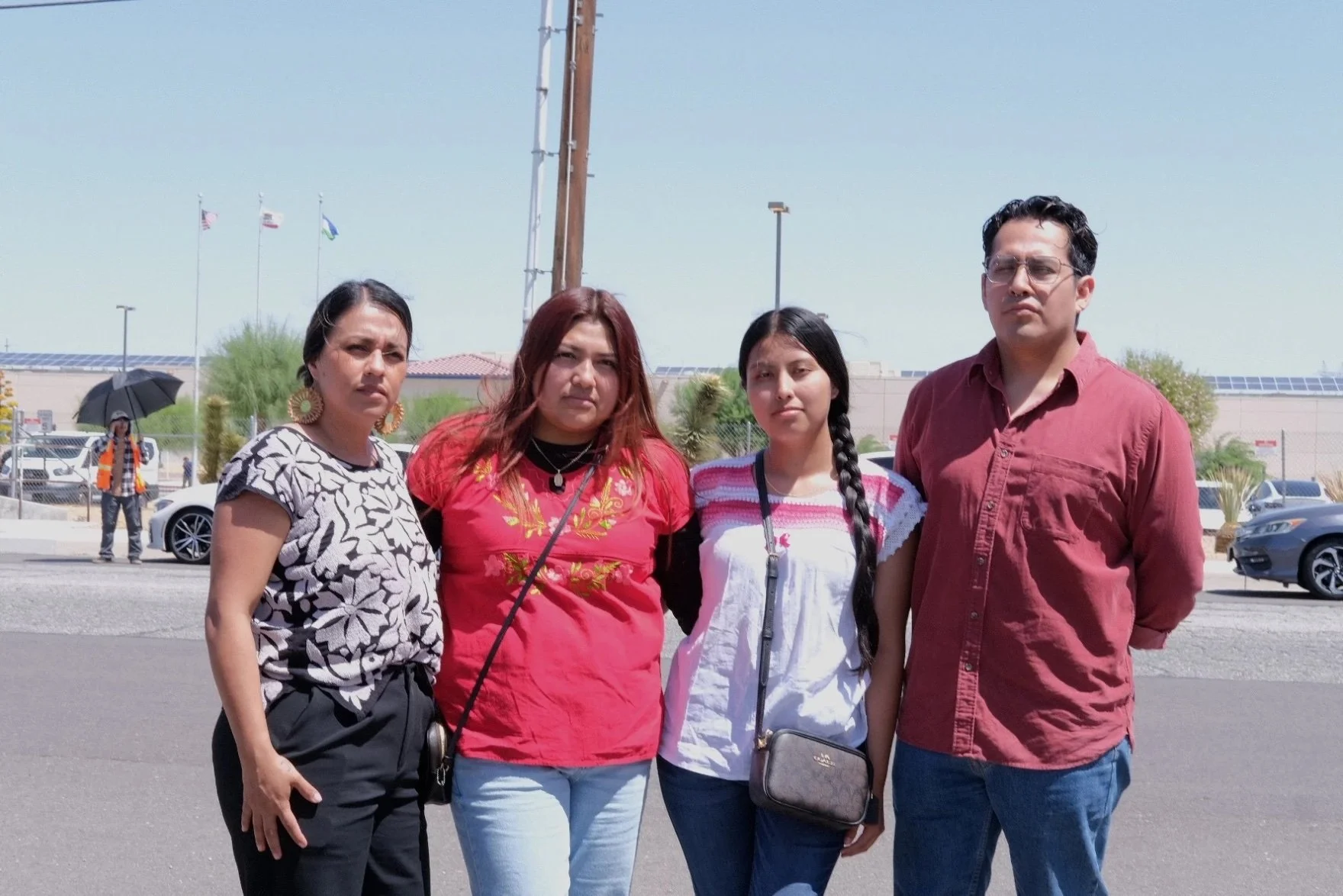🏡💚 Deportation, eviction, and the politics of removal
Undocumented immigrants and mixed-status families have always been especially vulnerable. Due to their unauthorized legal status, undocumented immigrants often take low-paying jobs that are exploitative and hazardous. Lacking legal protections, they have little recourse to prevent or stop workplace violations by unscrupulous employers. The same is true for housing, where undocumented immigrants are much more likely to live in unsafe, overcrowded, and substandard housing, and much more likely to be taken advantage of by landlords.
All of this has become even more extreme in recent months with the massive surge in state violence targeting immigrants.
Last week, Oaklandside reported a landlord that has been using the threat of deportation to pressure tenants to move out. The landlord, Derrick Chavis, has a long history of negligence and fraud. When he recently bought up an apartment building in the Fruitvale neighborhood, he quickly told the tenants they would need to move out in 30 days.
Soon after, they received a text from him: “Are you legal my staff was asking?”
Similar texts were sent to other tenants in the same building, many of whom are monolingual Spanish-speakers. The implication was clear.
In a panic and looking for help, the tenants were connected with ACCE’s Oakland chapter, who have been organizing with them in the two months since these first messages were sent. They have been in continuous struggle over these eviction attempts, and a host of other issues around rent payments, utilities, and building maintenance. Finally, Oakland’s City Attorney office has begun to intervene, threatening legal action.
Chavis is a slumlord and speculator. His Facebook profile says he “specializes in flipping homes and buy[ing] and hold[ing] Apartment Units.” The Fruitvale apartments he bought are rent controlled. Since the tenants have been living their for decades, most are paying well below market rates. By removing the renters, he could flip the property and bring in new tenants at higher rates.
The threat of deportation just gives him, and others like him, another tool for exploitation. ACCE Oakland’s director, Valerie Bachelor, pointed to this tactic as an example of the larger politics of fear and violence. “I think it’s because of the political climate we’re in,” she said. “We’re seeing these things be weaponized without penalties — it’s emboldening people to do what they want.”
When Oaklandside reached Chavis by phone, he denied everything, saying, “none of it is true.” It’s worth clipping directly from the article just to see the pure gall of this guy:
He literally used the Shaggy defense.
While Chavis is an especially egregious case, it is likely indicative of a much wider trend affecting families across the country as the immigrant crackdown and housing crisis collide.
For families directly affected by deportations, the shock of separation is also compounded by the questions of how they’ll pay next month’s rent. According to an eviction defense attorney from Bet Tzedek, Henrissa Bassey, “we will likely see an uptick of folks being evicted due to non-payment of rent, and the inciting event will be that their loved one was detained and taken by ICE.”
The financial impacts aren’t just limited to those who have had family members taken by ICE. Entire workplaces have preemptively shut down for fear of raids, causing immigrant workers to lose income even if they haven’t been detained. Day laborers are no longer showing up to the typical places they would go to look for shifts — raids at Home Depot and job centers have driven many to stay home.
A report released this week by the UC Merced Community and Labor Center show a direct tie between the ICE raids and an economic decline. This has an especially notable effect in certain industries with higher proportions of immigrant workers, like farm work and construction.
This reveals yet another way in which these crises fuel each other: emerging evidence shows how mass deportations reduces housing construction. This effect is especially strong in California, where an estimated 39% of the overall construction workforce is foreign-born.
Evictions and deportations are not just causally related actions. Ultimately, they are both about the forcible removal of people from their homes. Evictions have long been normalized and accepted as part of the social contract. The brazen kidnappings off the street by unidentified ICE officers have shocked our collective conscience, but they follow a logic we’re all too familiar with. Immigrants here are on the frontlines of these attacks, as the Trump administration has tried to make an example out of California. As noted by LA Tenant Union organizer Tony Carfello, this puts immigrant renters in a double bind: “Am I going to be picked up and deported without due process, or am I going to be sent out on the streets?”
A family stands outside the Adelanto ICE Processing Center, where a relative is being held after a raid on an L.A. apparel company. Source: LAist
WHAT WE’RE READING
ICE raids lead to another crisis for immigrant workers and families: How to pay rent (LAist)
Chinatown tenants just won a major victory after refusing to pay rent for almost 5 years (LA Public Press)
Holdouts in Marin County resist California rules speeding up multifamily housing (CalMatters)
Post-fire rent gouging charges have been rare, but LA County violators could soon be fined (LAist)
California voters want more action on housing, poll finds (Politico)
California, epicenter of the nation’s housing crisis, is finally getting a housing agency (LA Times)
Feel free to reply any time! I always enjoy hearing from people and getting any feedback/questions/additional thoughts.
We send these out on a somewhat weekly basis. If you don’t want to get these newsletters, feel free to unsubscribe below. If you know someone that would be interested, send me their email, or you can forward this along to them and they can use this link to subscribe.



